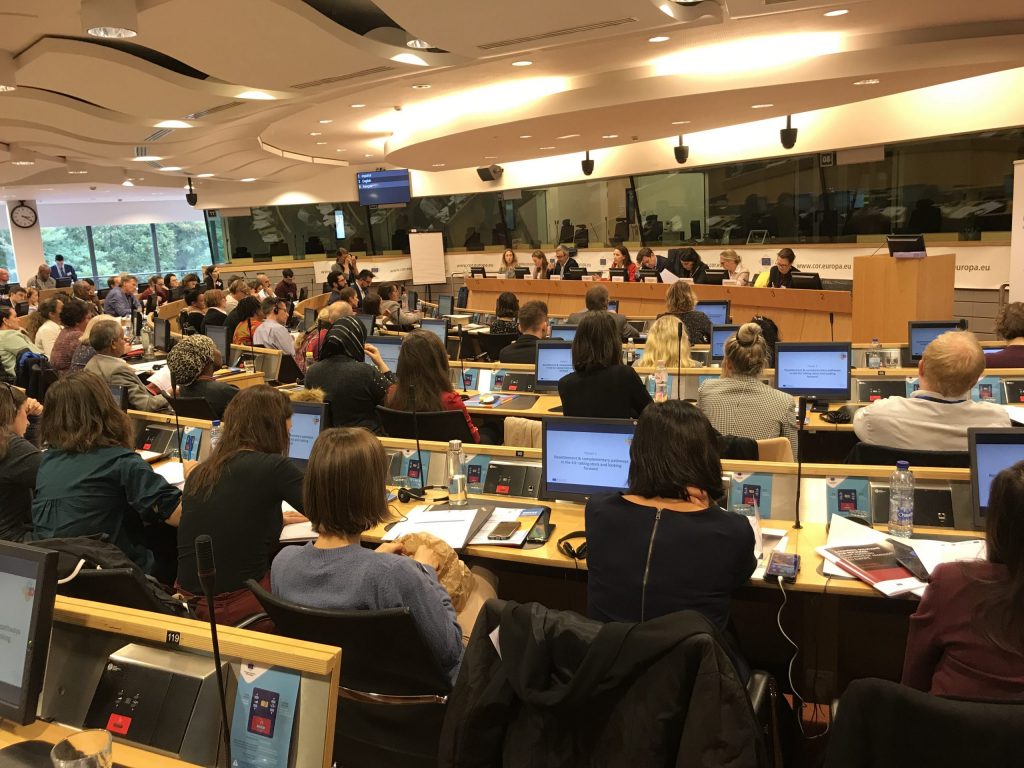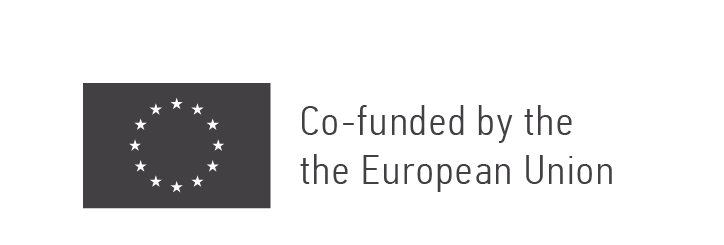The SHARE Integration project builds the capacity of experienced, new and emerging resettlement countries in Europe, to support reception, early settlement and integration for resettled, relocated (and privately sponsored) refugees. The SHARE Network developed between 2012 and 2015, will serve as a foundation from which the action will build upon and strengthen partnerships, provide resources and facilitate best practice exchange. The Action will ensure interconnectedness, coordination and information-sharing between pre-arrival and post arrival actors, to ensure adequate planning for arrivals and to address multi-level governance challenges, such as refugee placement mechanisms and distribution keys. SHARE Integration will also promote the ‘Mainstreaming Plus’ approach, to ensure that services for (vulnerable) refugees are incorporated in the (local) overall integration framework. Through national actions, research and European best practice exchange, the Action will engage in new partnerships, including private citizens, churches, diaspora organisations, universities and other actors, to welcome newcomers. SHARE Integration will particularly highlight the experiences of and partnerships in smaller cities and towns (less than 200,000 inhabitants). In order to strengthen reception and integration planning in smaller communities, SHARE Integration will support and promote new tools for social change, volunteering, language learning, employment and cultural orientation, provide training and will establish a Working Group on Mainstreaming of Special Needs and Private Sponsorship, to provide for a common framework and strategic guidance in these areas.
SHARE Integration “A Network of (small-size) cities, towns and local actors committed to offering protection and welcome for resettled or relocated refugees in Europe” co-financed by the European Commission, the SHARE Network has since March 2012 built toward a network of European regional and local authorities and their civil society partners involved in and/or with a commitment to refugee resettlement, protection and integration.
As an integral part of the European Resettlement Network, SHARE facilitates the inclusion of local and regional actors in the wider network, and ensures the visibility of the local and regional dimension of resettlement in European and global resettlement discussions and developments.
1. Number and type of stakeholders:
Since its launch, SHARE I + II have engaged over 1.200 participants from European and national NGOs, local authorities from various region, cities and municipalities, diaspora organisations, volunteers, parishes, universities, etc., in 28 European countries in a programme of structured dialogue, exchange of practice and networking between cities and regions in both experienced and emerging resettlement countries and those planning or considering resettlement. The SHARE Network in its third phase will raise the profile of- and engage with smaller cities and towns to strengthen reception and integration planning of resettled/relocated refugees through targeted trainings and European best practice exchange at visits and seminars in collaboration with project partners in Austria, Belgium, France, Germany, Italy, the Netherlands, Portugal, Romania and the UK.
2. Plans and objectives of the project:
Networking and strengthening welcome and integration particularly in smaller municipalities. The SHARE project will strengthen the capacity of smaller municipalities and civil society actors to facilitate refugee integration and offer welcoming communities. Coordination and networks among resettlement and mainstream actors working on asylum and migration across Europe, as well as within respective national contexts, are essential to successful resettlement and relocation programmes.
Expanding local platforms of municipalities, civil society, churches, private citizens and business in offering welcome, housing, language learning and labour market integration, particularly via volunteering. Building on previous experience supporting integration and volunteerism efforts, this project will leverage the energy and resources of local communities to enable smaller cities and towns to receive and integrate resettled and relocated refugees. National and regional roundtable meetings will identify and engage relevant national, regional and local stakeholders from smaller communities in order to discuss mainstreaming of refugee relocation and resettlement within overall service provision, as well as the potential for citizen engagement and volunteering welcoming environments.Roundtable meetings will aim to strengthen partnerships between all actors to ensure local preparedness to receive and successfully integrate vulnerable people.
Communication and awareness raising on role of municipalities and private actors in offering welcome and inclusion, including diaspora organisations and refugees themselves. The SHARE Network will raise the profile of- and engage with smaller cities and towns to strengthen reception and integration planning of resettled/relocated refugees. Several communication channels such as the SHARE Integration website, SHARE Magazines, SHARE Welcoming Communities video series will communicate about local integration programmes in smaller cities across Europe, upcoming events and project updates from the SHARE Network to relevant stakeholders.
Expanding SHARE Resettlement Ambassador Programme The inclusion of resettled and relocated refugees in SHARE events will enlarge the scope of the SHARE Resettlement Ambassador scheme. The ambassadors can promote social cohesion as a basis for integration bringing the examples of their city’s resettlement achievements and advocating for more and better resettlement at the local, national and European levels.
Research and exchange with institutional and private actors on best practices in national refugee placement and matching policies. Research within SHARE Integration will focus on 1) identifying best practices for small cities and towns in their efforts to welcome refugees, mainstream resettlement into overall integration efforts and offer relevant services to refugees with particular vulnerabilities and 2) the role of Christian organisations and churches in emerging private sponsorship models in Europe, highlight best practices and give concrete recommendations on how to build capacity of local communities who aim to set up similar programmes across Europe.
Expanding private sponsorship as an complementary legal pathway for refugees in Europe Since refugee can also be sponsored by private individuals, groups, corporations, and other entities, the overall goal of the SHARE Working Group on private sponsorship is to explore ways to increase capacity of potential new stakeholders who aim to set up private sponsorship programmes in other European countries though establishing the SHARE Working Group on Private Sponsorship (led by ICMC and Caritas Europe). ICMC Europe has recently published a Scoping Paper on “Private Sponsorship in Europe: Expanding complementary pathways for refugee resettlement”.

Refugee resettlement and integration in Europe: the SHARE Network discusses experiences and lessons learnt in Brussels
Brussels, 20 October 2019 – Over 140 representatives from 20 European countries including regional and local authorities, cities and municipalities, civil society organizations, citizens’ initiatives, previously resettled refugees and international organizations gathered in Brussels on Tuesday 20 October to discuss experiences and lessons learnt about resettlement and integration of refugees in Europe during the three years since the SHARE Network was established.
Co-hosted by the Committee of the Regions, the European institution representing the interests of regional and local authorities, the conference – titled “Protecting and Welcoming Refugees in Europe: responding to an unprecedented refugee crisis” – opened with a high-level panel of speakers from the European Commission, the UN Refugee Agency (UNHCR) and the European Council on Refugees and Exiles (ECRE). They outlined the current refugee situation both within Europe and at its borders, and the EU resettlement and relocation measures and proposals for their implementation – for example via “hotspots” in Greece and Italy. Increased refugee arrivals will affect all European countries which will need to upscale their reception and integration capacity accordingly. In this context, tools, resources and learning produced by the SHARE Network since its launch in March 2012 were discussed. As Michael Diedring – Secretary General of the European Council on Refugees and Exiles (ECRE) – noted, “the SHARE Network has not been just about exchanging best practices – it has also helped to create a culture of resettlement and welcome in Europe”.
“I arrived in Europe in 2011 from Ethiopia”, recounted Filmon Ghebrehiwot, a SHARE Resettlement Ambassador from the city of Antwerp. “I was like a ‘raw material’ – I had no idea of what to expect from my future. Thanks to NGOs and city integration services, I learned Dutch, took up some job training and managed to integrate into society. Now I work as a social orientation teacher for other refugees: I feel as if the ‘raw material’ has turned into something useful and productive.”
Subsequent panels showcased the efforts of grassroots associations, citizen and volunteer-led initiatives, faith-based organizations and others to welcome refugees to Europe. David Zistl, an Austrian student and one of the founders of the “Refugees Welcome” website, explained how a simple online platform developed into a widely-used tool enabling individuals to offer housing for refugees (a tool that will now be replicated in 8 other European countries). A Polish foundation displayed its engaging infographics aimed at educating and raising awareness about what refugees are and why they need protection, in the lead-up to Polish national elections. Representatives from bigger cities like Madrid, Vienna and Dortmund and smaller municipalities like, Aachen, Coventry and Sittard-Geelen presented a variety of awareness-raising campaigns, reception initiatives and partnerships for integration undertaken in their cities.
Overall, the interventions painted a picture of an exceptional and unprecedented desire to welcome refugees in Europe, with many new grassroots, citizen-led initiatives and partnerships flourishing all over the continent. The conference was another step in the SHARE Network’s facilitation of mutual learning, sharing of information, and exchange and dissemination of best practice amongst actors working on refugee resettlement, protection and integration in European towns and cities.
“The role that ICMC plays in this historical moment is an important one”, commented Peter Sutherland, UN Special Representative for Migration and President of ICMC, concluding an intense day of discussions and reflection. “Either we enable migrants to become part of the community, or we will witness tensions and a further growth of xenophobic movements. SHARE brought together cities, towns, communities, churches, migrant associations to promote and coordinate a real response to the needs of integration. I am proud of it”.
The conference marked the drawing to a close of the second phase of the SHARE program. After three and an half years of engagement in refugee resettlement, protection and integration, the conference was also the occasion to publish the SHARE Network policy statement “Protecting and Welcoming Refugees in Europe” (pdf, 330 Kb), which draws on the collective expertise of the network to advance recommendations for actors at all levels to contribute to the successful integration and welcome of refugees in Europe.



